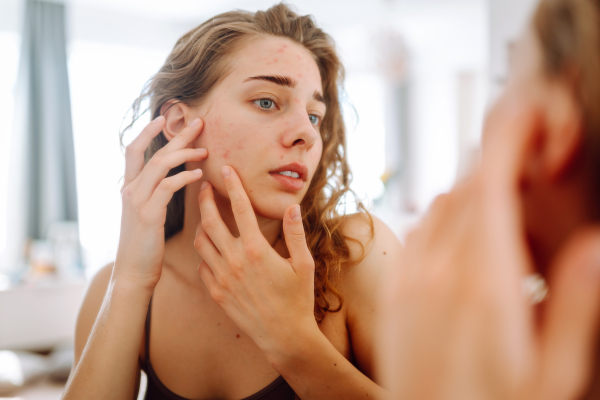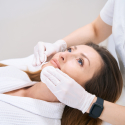- Europa
-
- Amstetten(7)
- Bad Schallerbach(1)
- Baden(4)
- Berg(1)
- Braunau am Inn(5)
- Bregenz(3)
- Bruck an der Mur(1)
- Graz(4)
- Hartberg(1)
- Innsbruck(5)
- Kemmelbach(1)
- Kitzbühel(4)
- Klagenfurt(5)
- Krems an der Donau(1)
- Kufstein(5)
- Leibnitz(1)
- Lienz(1)
- Liezen(1)
- Linz(5)
- Oetz(1)
- Punitz(1)
- Radstadt(1)
- Salzburg(5)
- St Polten(2)
- Steiermark(1)
- Steyr(1)
- Steyregg (1)
- Traun(3)
- Vienna(26)
- Villach(5)
- Völkermarkt(1)
- Wels(5)
- Wien(1)
- Wiener Neustadt(4)
-
- Aalst(1)
- Aarschot(2)
- Affligem(1)
- Anderlecht(5)
- Antwerp(11)
- Antwerpen(1)
- Arlon(6)
- Ath(2)
- Aubange(5)
- Bastogne (2)
- Blankenberge (1)
- Bruges(5)
- Brussels(15)
- Charleroi(5)
- Deinze(3)
- Dendermonde(1)
- Diest(2)
- Etterbeek(5)
- Geel(1)
- Genk(5)
- Gent(6)
- Geraardsbergen(1)
- Grimbergen (2)
- Hasselt(5)
- Heusden- Zolder(2)
- Ieper(1)
- Izegem(1)
- Knokke(4)
- Kortrijk(2)
- La Louviere(2)
- Leuven(5)
- Liege(4)
- Limburg(4)
- Lommel(1)
- Mortsel(1)
- Oostende(1)
- Turnhout(1)
-
- Chelyabinsk(1)
- Dubna(4)
- Gelendzhik(1)
- Irkutsk(1)
- Kaliningrad(1)
- Kazan(4)
- Krasnodar(3)
- Krasnoyarsk(1)
- Maykop(1)
- Moscow(50)
- Nizhny Novgorod(4)
- Novosibirsk(1)
- Omsk(1)
- Penza(1)
- Rostov-on-Don(2)
- Saint Petersburg(13)
- Samara(1)
- Saratov(1)
- Serpukhov (2)
- Sevastopol(3)
- Sochi(5)
- Stavropol(1)
- Surgut(1)
- Tyumen(2)
- Ufa(2)
- Vladivostok(3)
- Yekaterinburg (11)
-
- Alicante(8)
- Barcelona(113)
- Benalmadena(1)
- Benidorm(7)
- Castellón de la Plana(1)
- Denia(1)
- Estepona(1)
- Fuengirola (3)
- Ibiza(49)
- Jerez de la Frontera(1)
- Lanzarote(1)
- Las Palmas de Gran Canaria(5)
- Madrid(57)
- Malaga(9)
- Marbella(48)
- Murcia(1)
- Oviedo(1)
- Palma de Mallorca(48)
- Puerto Banus(3)
- Seville(1)
- Tarragona(1)
- Tenerife(7)
- Torrevieja(3)
- Valencia(9)
- Vigo(1)
- Zaragoza(1)
- Worldwide
Understanding Acne: Causes and Effective Solutions
 Acne is a common skin condition that can affect individuals of all ages, though it predominantly impacts teenagers. This condition arises when hair follicles become clogged with oil, dead skin cells, and bacteria, leading to inflammation. Various factors contribute to the development of acne, including hormonal fluctuations, diet, stress, and skincare choices.
Acne is a common skin condition that can affect individuals of all ages, though it predominantly impacts teenagers. This condition arises when hair follicles become clogged with oil, dead skin cells, and bacteria, leading to inflammation. Various factors contribute to the development of acne, including hormonal fluctuations, diet, stress, and skincare choices.Hormonal Changes
Hormones play a significant role in the onset of acne. During puberty, the body experiences an increase in androgens, which can cause sebaceous glands to produce excess oil. This surge can lead to clogged pores and subsequent breakouts. Additionally, hormonal changes related to menstrual cycles, pregnancy, or conditions like polycystic ovary syndrome (PCOS) can exacerbate acne.
Diet and Lifestyle Factors
What we consume can influence our skin health. Diets high in refined sugars and dairy products have been linked to an increase in acne. Stress also plays a crucial role; when individuals are under pressure, the body produces more cortisol, which can trigger increased oil production. Poor sleep and a lack of physical activity can further aggravate skin issues.
Types of Acne
Understanding the various forms of acne can help in identifying the most effective treatment methods.
Comedonal Acne
This type includes both open comedones (blackheads) and closed comedones (whiteheads). Comedonal acne forms when hair follicles are blocked but do not become inflamed. While not painful, they can be unsightly and may develop into more severe forms of acne if not treated.
Inflammatory Acne
This category encompasses papules, pustules, and cystic acne. Inflammatory acne is characterized by redness, swelling, and tenderness, resulting from bacteria and inflammation. Cystic acne, in particular, can be painful and often requires more intensive treatment.
Strategies for Treating Acne
Skincare Routine Adjustments
A consistent skincare regimen can significantly impact acne management. Use gentle, non-comedogenic products that won’t clog pores. Incorporate ingredients such as salicylic acid or benzoyl peroxide, which help to clear out pores and reduce inflammation.
Professional Treatments
For persistent or severe cases, professional treatments may be necessary. Dermatologists can prescribe topical retinoids, antibiotics, or hormonal therapies. Procedures like chemical peels, laser therapy, and extractions can also be effective in managing acne and preventing scarring.
Lifestyle Changes to Consider
Dietary Modifications
Adopting a balanced diet rich in whole foods can improve skin health. Focus on consuming plenty of fruits, vegetables, whole grains, and lean proteins. Reducing the intake of sugar and processed foods may also help minimize breakouts.
Stress Management
Incorporating stress-reduction techniques such as mindfulness, yoga, or regular exercise can promote overall well-being and potentially reduce the severity of acne. Ensuring adequate sleep is also vital for maintaining skin health.
Conclusion: Taking Control of Your Skin
While acne can be frustrating and challenging, understanding its causes and implementing effective treatments can lead to significant improvements. By making informed choices about skincare, diet, and lifestyle, individuals can manage their acne and enhance their overall skin health.









